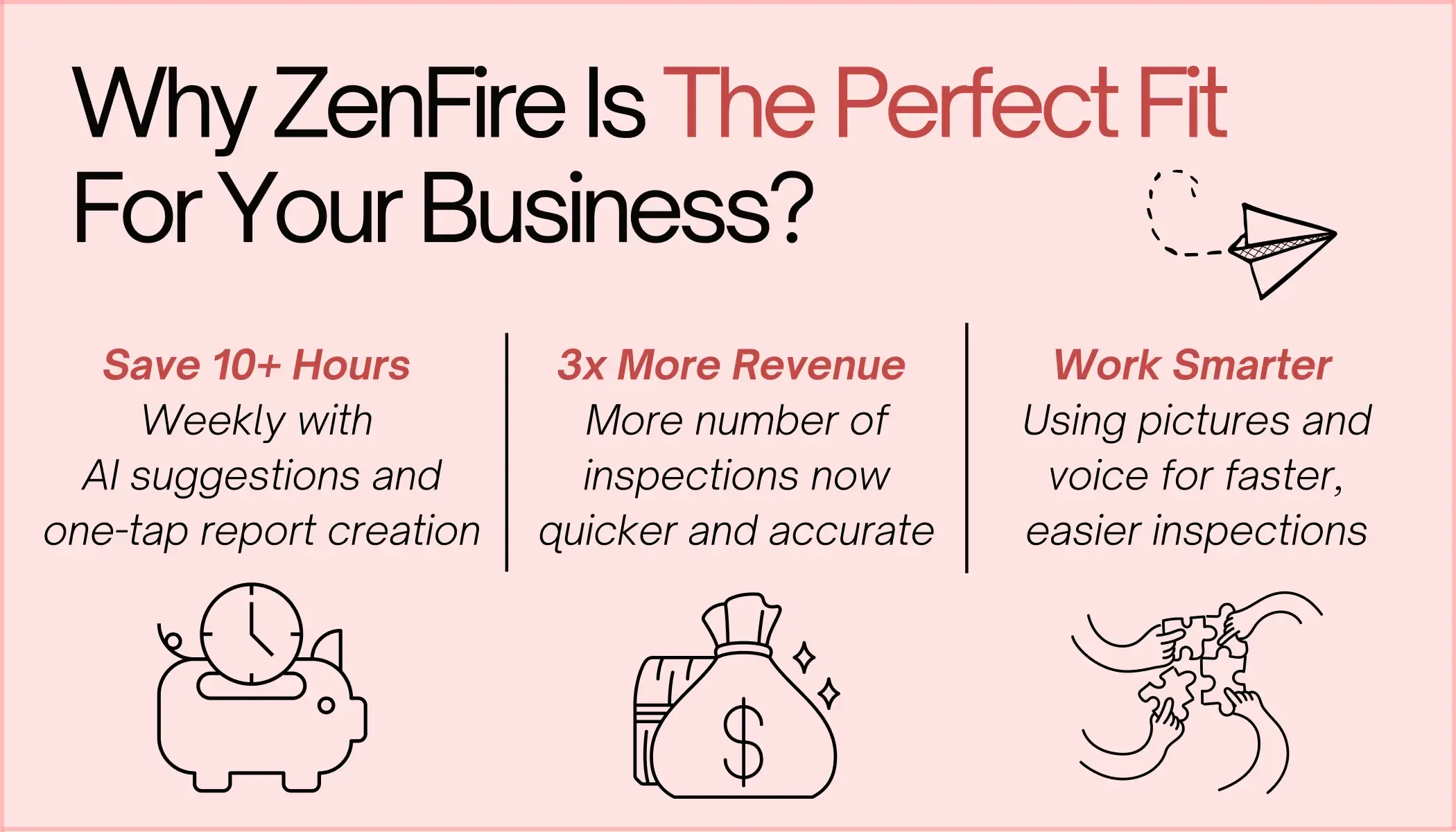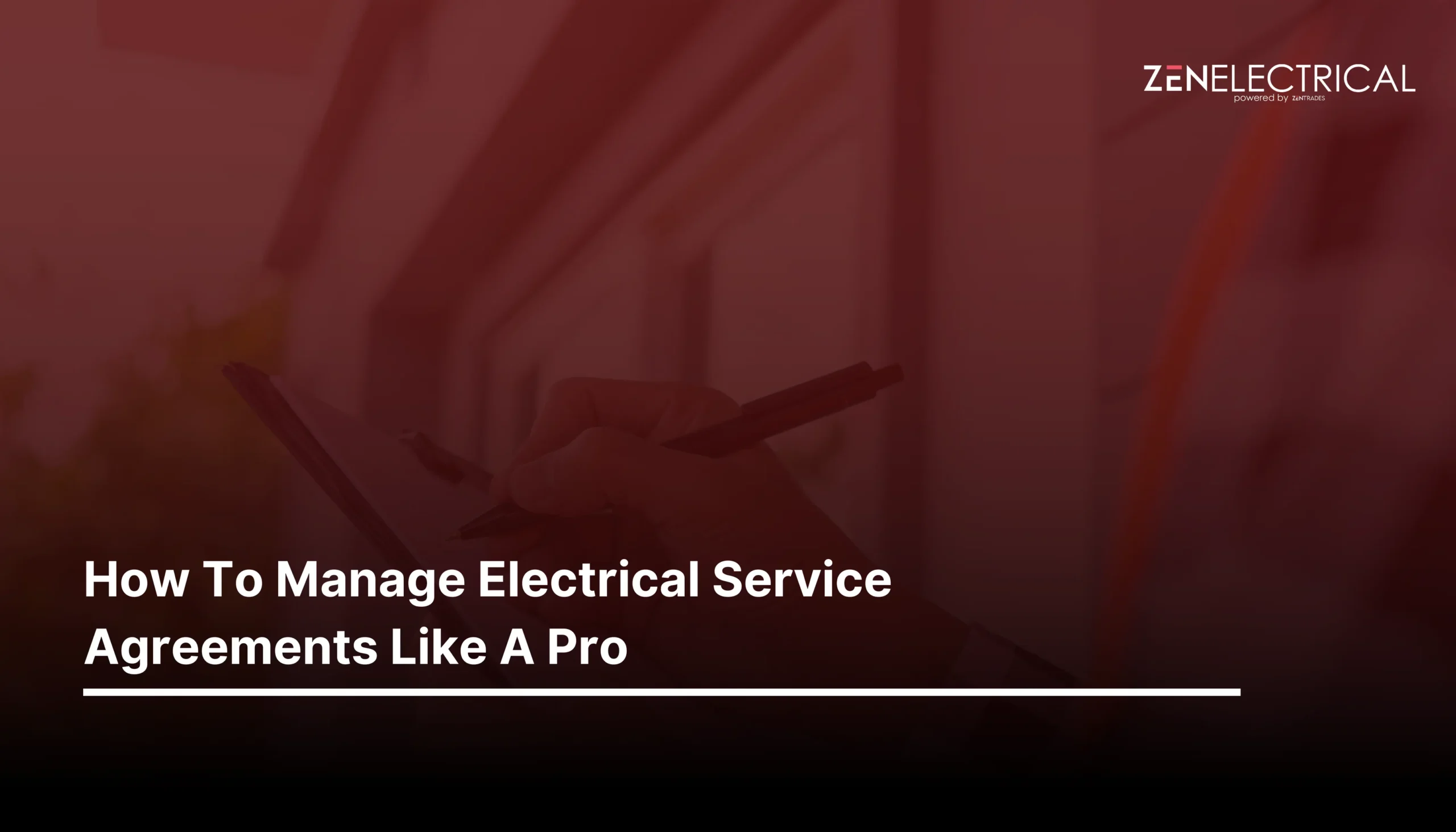
- Arizona projects an 18.7% increase in the number of electrician jobs by 2032.
- You will need 8,000 hours of work experience to qualify for the Arizona license.
- The CR-11 license lets you handle both residential & commercial jobs.
- License costs range from $580 to $850, depending on the type.
- Electricians in Phoenix earn approximately $ 54,900 per year on average.
Electricians in Arizona are in strong demand and well-compensated. According to the U.S. Bureau of Labor Statistics, the national median wage for electricians was about $62,350 in 2024. In Arizona, the pay is roughly comparable to the national median. For example, the average electrician’s salary in Phoenix is around $54,900-$58,000 per year. With the state’s booming construction and renewable energy industries, job growth for electricians is far above average. National projections are about 11% growth in electrical jobs between 2023 and 2033, and according to one analysis, Arizona has 18.7% growth in electrical employment through 2032.
Of course, to perform electrical work beyond minor tasks, you must be properly licensed. Arizona law requires an electrical contractor license for you to run your own business. Additionally, projects that are above $1,000 in labor and materials, or any work requiring a permit, must be performed by a licensed contractor. Homeowners do not need a license to work on their own residence as long as the structure is not being sold or rented afterward. But any significant wiring, panel work, or new circuits do require the Arizona electrician license. In short, to install, modify, or repair wiring and electrical systems on most jobs, you need a valid license issued by the Arizona State Registrar of Contractors (ROC).
Obtaining an Arizona electrical license can be overwhelming for anyone wanting to work legally and independently as an electrician or electrical contractor in the state. Apprentice electricians typically begin their career by working under a licensed electrician, but eventually many aim to become the “qualifying party” on their own ROC (Register of Contractors) license.
In this blog, we will walk you through every step, from training to testing to application. We will explain the different license classifications, the apprenticeship program and schooling routes, costs, licensing exam format, reciprocity agreements, average hourly wage, and more, so you have a complete roadmap to licensure in the end.
Table of Contents
What Are The 4 Types Of Electrical Licenses Available In Arizona?
Arizona classifies electrical contractor licenses by specialty. The common confusion often arises over license codes R-62 and CR-37, which are not electrical licenses. The R-62 Minor Home Improvements license covers small remodeling projects up to $5,000 but expressly excludes electrical work. Similarly, CR-37 is a plumbing license that combines both commercial and residential, and neither of these permits electrical installations or repairs.
Here are the different types of electrical licenses available in Arizona:
R-11 (Residential Electrical Contractor)
An R-11 license covers wiring, lighting, outlets, panels, and related electrical work for single-family homes and multi-family residences up to 3 stories. For example, you can install an electrical panel or run new branch circuits in a home with an R-11 license.
C-11 (Commercial Electrical Contractor)
A C-11 license allows you to perform commercial and industrial wiring up to 600 volts in offices, stores, schools, factories, etc. It also includes feeders and overhead lines, per NEC rules.
CR-11 (Residential And Commercial Electrical Contractor)
A CR-11 license combines the scopes of R-11 and C-11 into one. This lets a contractor work on both residential and commercial projects without holding separate licenses.
R-16 (Fire Protection Systems)
An R-16 is not a general electrical license, but is sometimes needed if you install or repair fire alarm and suppression systems. Having an R-16 license allows you to perform electrical work on low-voltage fire alarms and sprinklers.
R-67 (Low Voltage Communication System)
An R-67 license covers phone, data, security alarm, and similar low-voltage systems.
Arizona does not issue a statewide journeyman or master electrician certificate. Instead, once you have the hours, you can apply straight for a contractor’s license. You will most often be dealing with R-11, C-11, or CR-11 for standard electrical contracting. If you see other codes like R-19, R-62, C-10, etc, those are for HVAC, general improvements, plumbing, etc. By law, any contractor or business performing electrical work must have a proper one of these licenses in Arizona
Training and Electrician Apprenticeship Program In Arizona
Before you even apply for a license, you must acquire the skills and hours of experience in the trade. Arizona requires 4 years of verifiable electrical experience, which is about 8,000 hours, before you can be licensed as an electrical contractor. Most electricians enter 4- or 5-year apprenticeship programs that combine paid on-the-job work with classroom instruction in electrical theory, code, and safety. For example, a typical electrician apprenticeship will cover electric theory, blueprint reading, NEC (National Electrical Code), and specialized topics like motors, controls, and wiring methods. In the end, you will reach a stage of journeyman electrician, ready for the license application.
Arizona has both union and non-union electrical apprenticeships. The most prominent are IBEW/NECA Electricians’ Joint Apprenticeship Training Committee (JATC) programs. For example, the Phoenix Electrical JATC and Tucson Electrical JATC run statewide apprenticeship classes that lead apprentices through 4-5 years of training. You need to be at least 18 years old, have a high school diploma or GED, a driver’s license, and basic math or computer skills to enter the program.
There are also non-union employer-run programs and programs through the Arizona Apprenticeship Council. Many electrical contractors also hire apprentices directly. If the contactor is part of an apprenticeship trust, the hours are typically certified by a sponsor. The ROC provides an Apprenticeship Certificate Registry to record an apprentice’s progress, although the registry doesn’t guarantee licensure.
Technical Schools and Colleges
In parallel with apprenticeship, you can attend technical schools or community college programs. These can accelerate your theory training and sometimes shorten the apprenticeship durations. There are electrical technology programs offered by:
Maricopa County Community Colleges
Mesa Community College
Pima Community College
Cochise College
Northern Arizona University
Even private trade schools like The Refrigeration School (RSI), Universal Technical Institute, and other vocational colleges offer one-year electrician diploma programs in Phoenix and Tempe. If you complete any coursework, it can substitute for a portion of apprenticeship hours per ROC allowance, which effectively reduces the time on the job.
As of 2025, BuildAZ is investing in hands-on training and apprenticeships for construction trades, including electricians. The state’s Department of Education also maintains a list of in-demand technical programs. So, when you choose a program, look for ACWA (Arizona Construction Workforce Alliance) or ACCSC accreditation, and make sure it provides real lab training and NEC code instruction.
How Long Is Electrician School In Arizona?
Expect 4 years of combined on-the-job experience and school before licensure. Some states allow clock-hour substitutions, but in Arizona, it will take roughly 4 years of full-time apprenticeship.
As an apprentice, you will get paid, which will typically be 50%-60% of a journeyman electrician’s wage at start, and it will rise each year. Furthermore, you don’t have to pay tuition for the apprenticeship; it will be tax-funded for the classroom portion.
However, after 2 years, you can apply for a local journeyman certification if your city or county issues them, or simply continue to accumulate hours. As mentioned above, Arizona does not issue a statewide journeyman or master electrician certificate. Instead, once you have the hours, you can go straight for a contractor’s license. Some cities like Phoenix, Tucson, Flagstaff, and counties have their own electrical permit and inspection requirements. You may need to pass those local exams or obtain local licenses in addition to the state ROC license.
How Do I Get My Electrical License In Arizona?
Here is a step-by-step formal licensing process through the Arizona Registrar of Contractors (ROC):
Step 1: Decide Which License Category You Want To Go For
Decide whether you need a Residential (R-11), Commercial (C-11), or Dual (CR-11) license. If you want to handle any kind of electrical work, the CR-11 will give you the broadest scope.
Step 2: Meet The Experience Requirement
You must document 4 years of full-time electrical experience to qualify. The experience should cover the scope of the license you are applying for. For example, you must gain experience in residential wiring if you are applying for R-11. You will need letters or verifications from employers or contractors that will confirm your role, projects, and hours.
Step 3: Identify Who Will Be A Qualifying Party
Every license needs a responsible individual who has the required experience and will pass the exams. This could be you if you meet the criteria, or someone you hire. The qualifying party must be at least 18 years old, and for a corporation or LLC, the qualifying party must be an officer or employee of the company.
Step 4: Pass The Required Exams
Arizona usually requires you to give two exams: the Statutes and Rules Exam (SRE) and the Trade Exam. Here is a more detailed explanation of each of these exams:
Statutes and Rules Exams: It is a 50-question online test on Arizona contractor law, business management, and ROC rules. This is taken through the GMetric systems, and the exam fee is $54. It can be taken online when you apply via the ROC portal.
Trade Exam: It is a state-specific exam. For R-11/C-11/CR-11, you must pass the Arizona Electrical Trade Exam unless waived. The trade test is open-book with 110 multiple-choice questions, 4 hours of time, and a 70% passing score. The books that you can bring include the 2017 National Electrical Code (NFPA 70), NFPA 72 (2016 National Fire Alarm Code), OSHA 1926 Safety, and electrical calculation manuals. The trade exam fee is $66.
However, if you were the qualifying party on a similar electrical license in another state within the last 5 years, Arizona will waive the trade exam for you. Alternatively, Arizona offers a NASCLA-accredited electrical Exam option, which is accepted in multiple states, and the exam fee is $116. There are many contractors who choose the NASCLA route for flexibility. Otherwise, you can prepare by studying the relevant code books and taking practice tests.
Step 5: Gather The Documentation Before Applying For Licensure
Before applying for the licensure, make sure you have proof of identity for all people named on the application, documentation of work experience, a business entity if not a sole proprietor (LLC/corp must be in good standing with the Arizona Corporation Commission), a surety bond and the filled out license application form.
Step 6: Pay The Fees And Apply
Submit your completed ROC License Application form via the online portal or by mail, and include the fees for a new license, which will be the total of the application, two-year license, and recovery fund assessment. Here is a complete breakdown of the fees for each license category:
License Type | Application Fee | License Fee | Recovery Fund | Total New License Fee |
R-11 | $80 | $270 | $370 | $720 |
C-11 | $100 | $480 | $0 | $580 |
CR-11 | $100 | $380 | $370 | $850 |
If you are a veteran or a part of an active-duty family, you will get a waiver of application fees for a first license, per state law.
Once the exams are passed, ROC will review your application, bond, and supporting documents. If everything is in order, you will receive your electrical contractor license certificate in the mail. You must renew the license every two years to stay active.
Arizona License Exam Format
Even though we have given a little detail about the exam structure, here is a more detailed explanation of the exam format and content. The business (SRE) exam is 50 multiple-choice questions on Arizona laws, rules, contracts, and basic business practice. It can be taken online via the ROC portal. The electrical trade exam is open-book and covers electrical trade knowledge and code. The exam has 110 questions and a 4-hour duration.
Arizona permits you to bring:
The 2016 NFPA 72 (National Fire Alarm Code)
An electrician’s handbook, such as Ugly’s 2023.
The topics typically include:
Electrical Theory (Ohm’s law, calculations)
Wiring (Conductors, Boxes, Raceways)
Feeders and Branch Circuits
Grounding/Bonding
Motors and Controls
Low-voltage Systems
Lighting and Fixtures
Special occupancies like pools, healthcare, etc.
Electrical safety
After you pass the exam, ROC will immediately credit the exam results to your application.
How Much Does It Cost To Get A ROC License In Arizona?
The cost of the ROC license depends on the category you are applying for. The total license fee for R-11, C-11, and CR-11 is $720, $580, and $850, respectively. Apart from application and exam fees, you need additional finances for the license bond, insurance, and renewal.
Arizona requires every contractor to submit a license bond. For a small specialty electrical license, the bond amount starts at $2,500. And if you plan to do more work in a year, the required bond will rise. The bond is usually a surety bond that you purchase from an insurance company. However, ROC itself does not mandate general liability insurance or workers’ compensation, but many clients or municipalities require contractors to carry insurance. So, it is always wise to secure liability coverage before doing big jobs.
Apart from license and insurance, you must renew the license every two years, and you should plan all these costs ahead. If you are a veteran or active-duty spouse, Arizona waives he initial application fee on your first application. And there is also a $200,000 consumer protection fund requirement for residential contractors by ARS, but this is usually met by the recovery fund payment.
What Electrical Work Can Be Done Without A License In Arizona
Any electrical work beyond the most minor repairs typically requires a licensed electrician. By state law, if the total cost of the labor and materials exceeds $1,000 or a permit is needed, you must use a licensed contractor. This means that homeowners can change a light switch or outlet without a contractor, but rewiring a room or installing a new circuit would require a licensed electrician.
Additionally, retail sales of installers of pre-made items like ceiling fans or some home appliances are exempt if the total job is under $1,000. A homeowner may work on their own home without holding a license as long as the home is not for sale or rent. But if there are any major electrical installations, that would require a journeyman electrician.
The ROC explicitly states that a contractor’s license is needed even if no permit is pulled whenever costs exceed $1,000. Conversely, jobs under $1,000 don’t legally require a license, though building codes still apply.
What States Reciprocate With Arizona Electrical License?
Arizona does not have automatic reciprocity agreements with other states for electrical licenses. That means if you move here with a license from another state, you generally must go through Arizona’s process to get licensed. However, Arizona offers some accommodations. If you have been the qualifying party on a similar electrical license in another state within the past 5 years, and you passed the state’s exam, Arizona will waive the trade exam for that classification. This means you could potentially skip the Arizona trade exam if you hold a comparable out-of-state license.
There’s another way to transfer your license. If you took the national NASCLA electrical exam for Arizona or another NASCLA-recognizing state, many states accept NASCLA scores in lieu of a local exam. Still, even with waivers, you must file an Arizona application, submit a bond, and pass the Arizona SRE exam. If you want to work in multiple jurisdictions, you should plan accordingly and know that holding an Arizona license does not grant you a free license elsewhere.
Do Electricians Make Good Money In Arizona?
Yes. As mentioned in the introduction, Arizona electricians earn solid wages. In May 2024, the median nationwide electrician salary was $62,350. In Phoenix and statewide Arizona, the typical salaries are a bit lower than the national median. For example, Phoenix electricians earn around $54,900 per year.
Journeyman electricians often earn between $20 and $30 per hour, while master electricians or contractors can easily exceed $35-$40 per hour plus the profit shares.
Are Electricians In High Demand In Arizona?
Yes. There is strong demand for skilled electricians in Arizona. The state’s rapid growth in construction, particularly residential housing and commercial developments, is the major factor. Additionally, Arizona’s leadership in solar power energy projects adds specialized electrical job opportunities. According to the Construction Trades Apprenticeship Council, Arizona has added thousands of electrical apprentices recently, which indicates electrical industry growth.
In short, licensed electricians in Arizona can expect competitive pay and strong job security.
Maintaining Your License
Once you have our Arizona contractor license, you must renew it every two years. The ROC will send you renewal notices, and the renewal fees are approximately 50%-80% of the original license fee. For example, renewing a dual CR-11 costs about $650. You should make sure that your renewal is submitted before expiration.
Arizona does not currently require continuing education courses for electrical contractors. Unlike some states, there is no mandated hour requirement or approved course list. However, staying up-to-date on code changes is really important for safe and competitive practice. Many contractors voluntarily take CE classes on a 3-year cycle even though it is not legally required.
Also, if you are a contractor, you must always keep your insurance and bond current, maintain a good relationship with a surety company, and report any changes in your business address or ownership changes to the ROC.
The Road To Your Arizona Electrical License
Becoming a licensed electrician in Arizona is a commitment to skill, safety, and long-term opportunity in one of the fastest-growing states in the country.
Whether you are entering the field as an apprentice, training to become a journeyman, or want to run your own electrical contracting business, Arizona has a very well-structured path. From understanding the differences between the R-62, CR-1, and CR-37 licenses to understanding the steps involved in ROC application, training hours, and the exam process, everything requires dedication.
Electricians in Arizona are in high demand due to ongoing residential, commercial, and industrial development. Take it one step at a time, stay compliant with Arizona’s licensing laws, and invest in the right training.

Get Insights Delivered Straight
To Your Inbox!
Related Reading
Why Your Field Software Management Software Needs QuickBooks Integration
ZenTrades Why Your Field Service Management Software Needs QuickBooks Integration Read More Request Demo...
Read MoreZenTrades How To Manage Electrical Service Agreements Like...
Read MoreZenTrades The Best 5 Jobber Alternatives In 2023...
Read More


